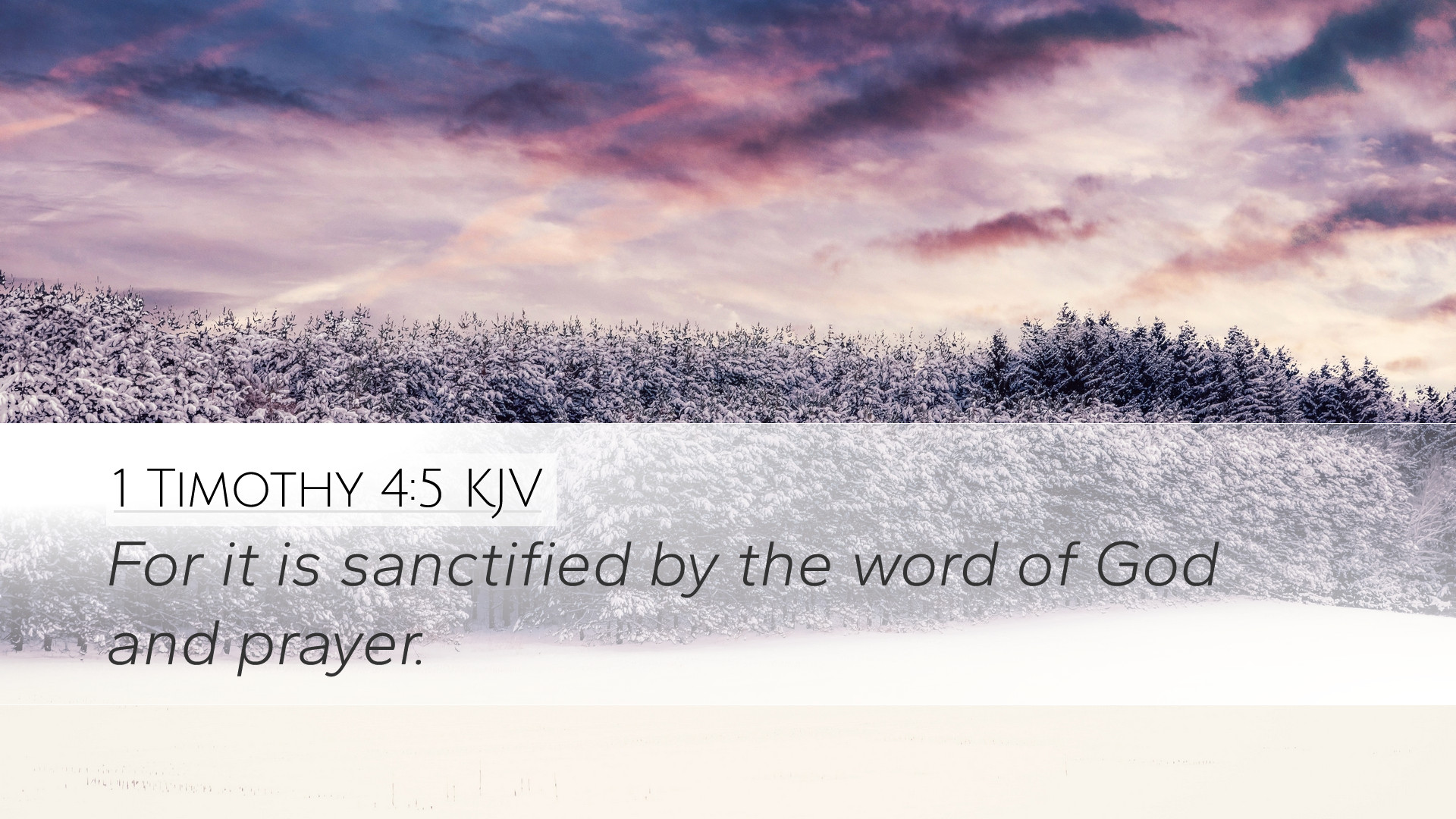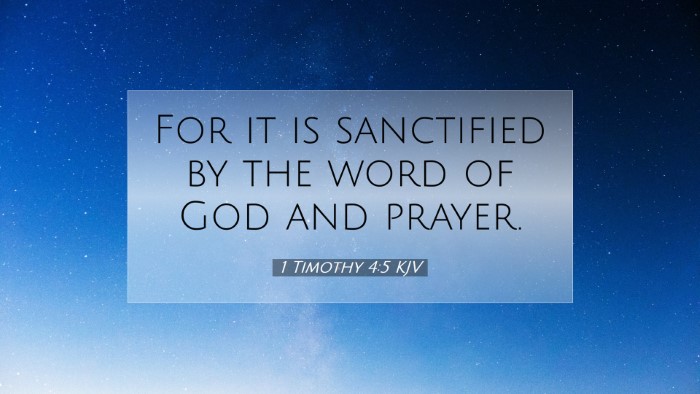Old Testament
Genesis Exodus Leviticus Numbers Deuteronomy Joshua Judges Ruth 1 Samuel 2 Samuel 1 Kings 2 Kings 1 Chronicles 2 Chronicles Ezra Nehemiah Esther Job Psalms Proverbs Ecclesiastes Song of Solomon Isaiah Jeremiah Lamentations Ezekiel Daniel Hosea Joel Amos Obadiah Jonah Micah Nahum Habakkuk Zephaniah Haggai Zechariah Malachi1 Timothy 4:5
1 Timothy 4:5 KJV
For it is sanctified by the word of God and prayer.
1 Timothy 4:5 Bible Commentary
Commentary on 1 Timothy 4:5
1 Timothy 4:5 states: "For it is sanctified by the word of God and prayer." This brief yet profound verse encapsulates essential doctrinal truths regarding the sanctification of God's creations through divine means.
Introduction
The context of 1 Timothy is crucial for understanding this verse. Paul writes to Timothy, a young pastor, addressing challenges within the early Church, particularly false teachings regarding food and ascetic practices. This commentary will explore insights from notable public domain theologians to deepen the understanding of this text.
Contextual Overview
Timothy is faced with asceticism—a heretical doctrine suggesting that certain foods or marriage are inherently evil. Paul counters this by emphasizing that all creation is good and can be made holy. The teaching serves as a defense against legalistic practices and emphasizes God's grace.
Theological Insights
Matthew Henry's Perspective
Matthew Henry highlights the importance of the word of God in the sanctification process. He writes that "God’s blessing is upon all His creatures, and they are not to be despised." Here, Henry underscores the sanctifying power of God’s Word, which, when coupled with prayer, protects believers from error concerning what is acceptable.
Albert Barnes' Commentary
Albert Barnes elaborates that the phrase "it is sanctified" implies the setting apart of creation for sacred use. He notes, "The food, when received with thanksgiving and prayer, is set apart for the use for which God intended it." This view encourages believers to understand that food and other creations do not change in essence through ritual, but they are acknowledged and blessed through God’s Word, making them holy for consumption.
Adam Clarke's Contributions
Adam Clarke takes a broader interpretation, pointing out the necessity of both the Word and prayer in the life of a believer. He states, "The Word informs us what we may partake of, and prayer sanctifies our enjoyment of it." Thus, Clarke emphasizes the synergistic relationship between divine instruction and personal devotion, which cultivates a holy lifestyle.
Application for Believers
This verse addresses the contemporary issue of legalism in Christianity. It reassures believers that food and material pleasures do not inherently possess moral or spiritual failings. Rather, it is the attitude and gratitude of the heart, expressed through prayer and thanksgiving, that consecrate the mundane.
Practical Lessons
- Value of Gratitude: This passage encourages believers to approach God with gratitude and acknowledgment of His provision.
- Freedom in Christ: Understanding that all things created by God are good equips Christians for a life free from ascetic burdens.
- Importance of Prayer: Engaging in prayer is vital for believers, as it connects them with God and blesses their actions.
Conclusion
1 Timothy 4:5 serves as a counter to asceticism and offers foundational truths about the interaction between God’s Word, prayer, and creation. In unpacking the insights from Matthew Henry, Albert Barnes, and Adam Clarke, one can appreciate the depth of this verse and its implications for Christian living. It invites believers to genuinely partake in the good gifts of God with thanksgiving, recognizing the transformative power of both scripture and prayer in their experiences.


